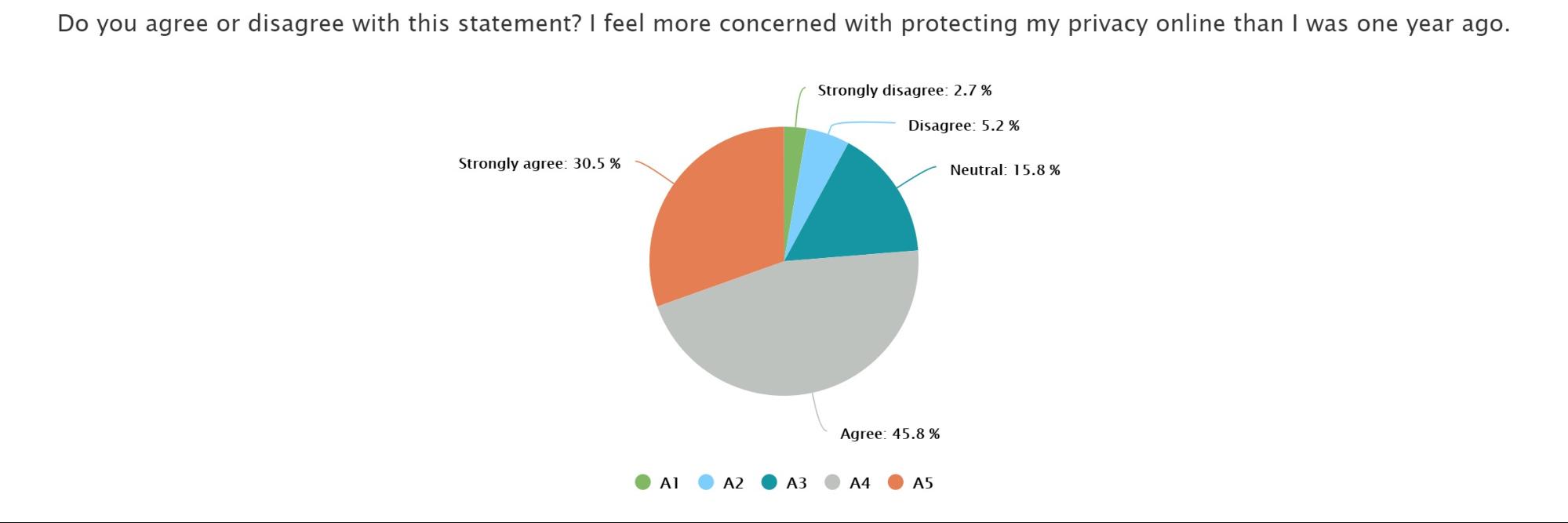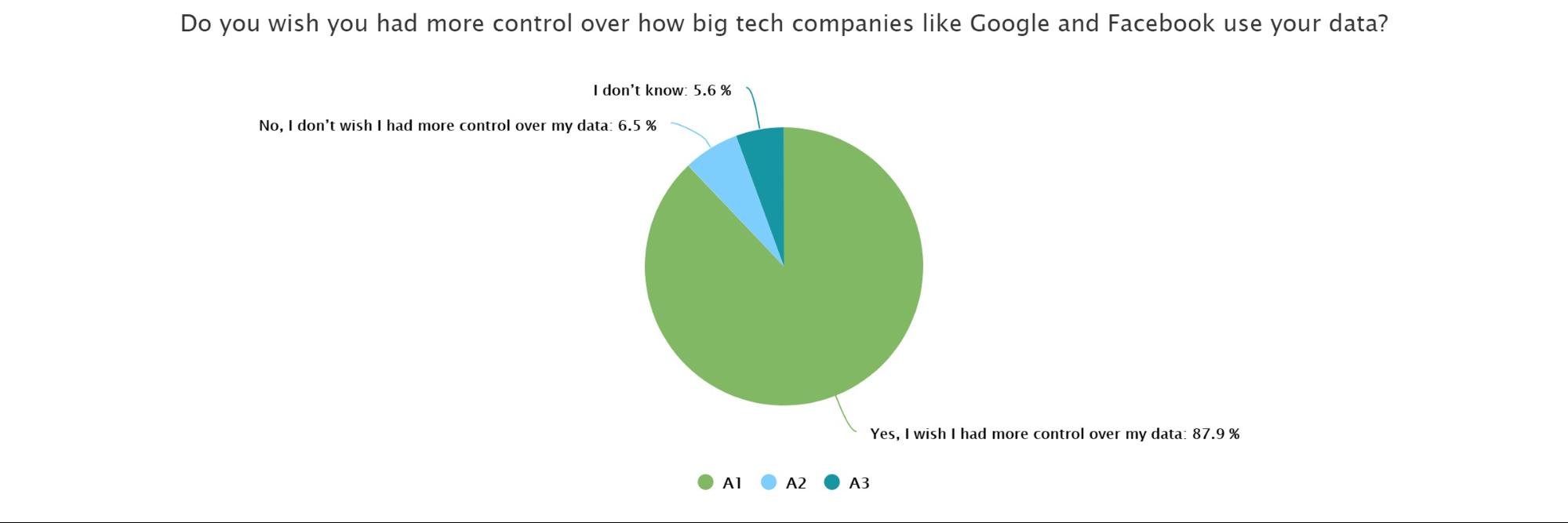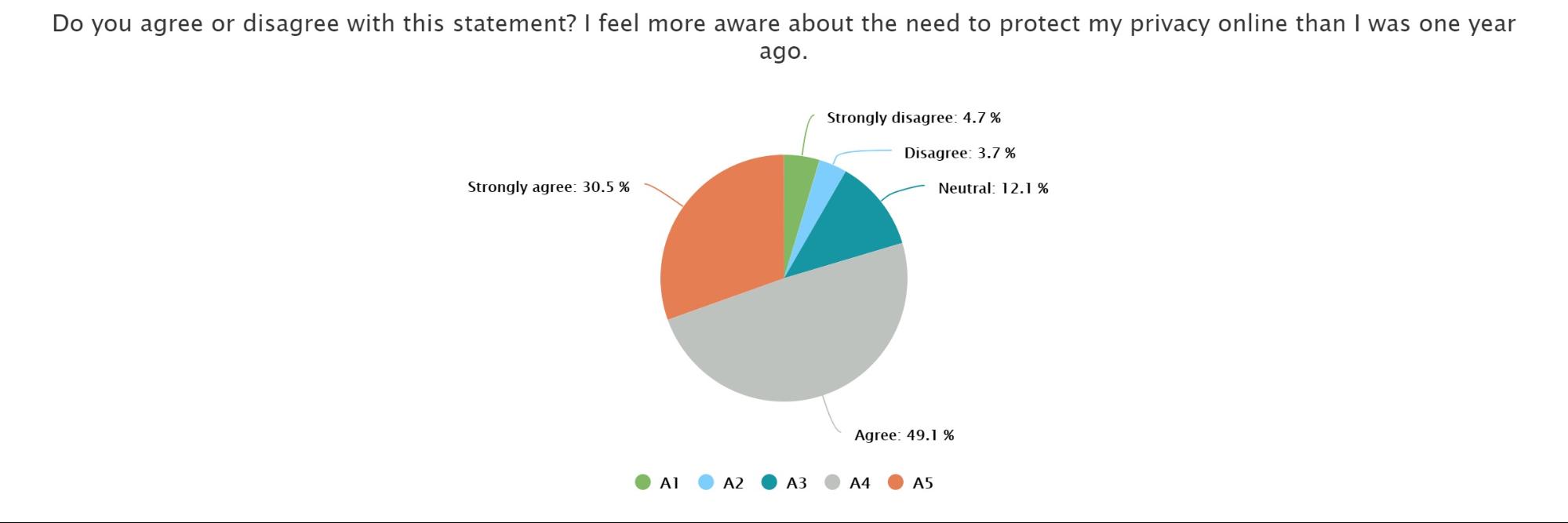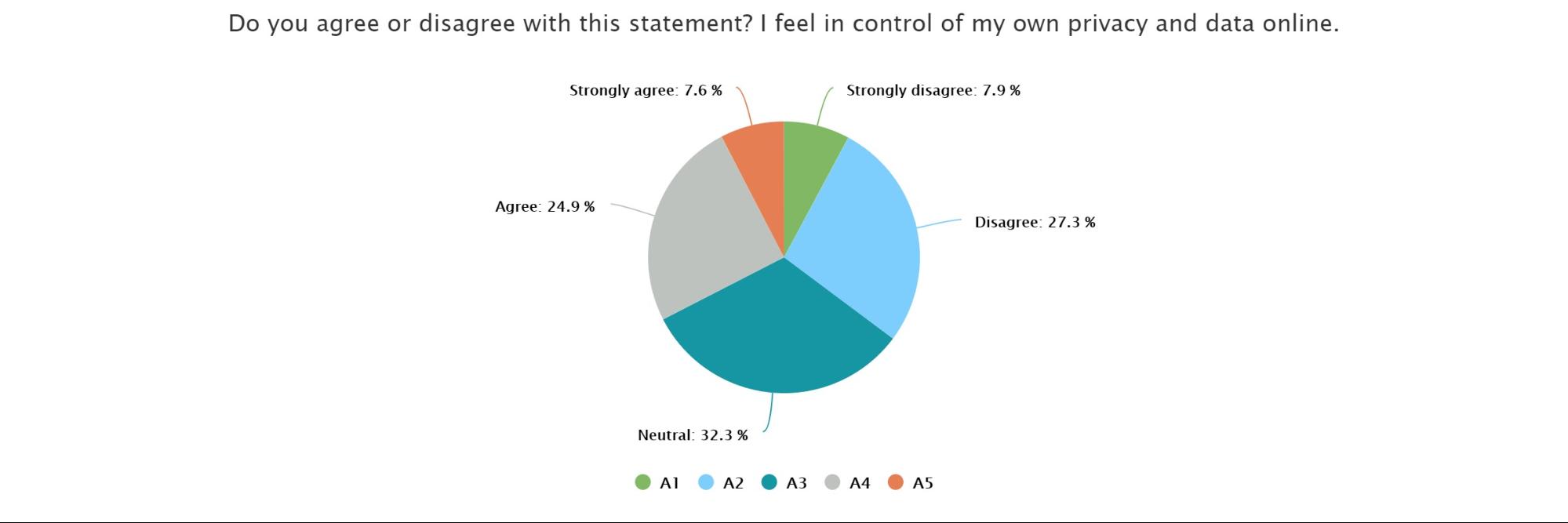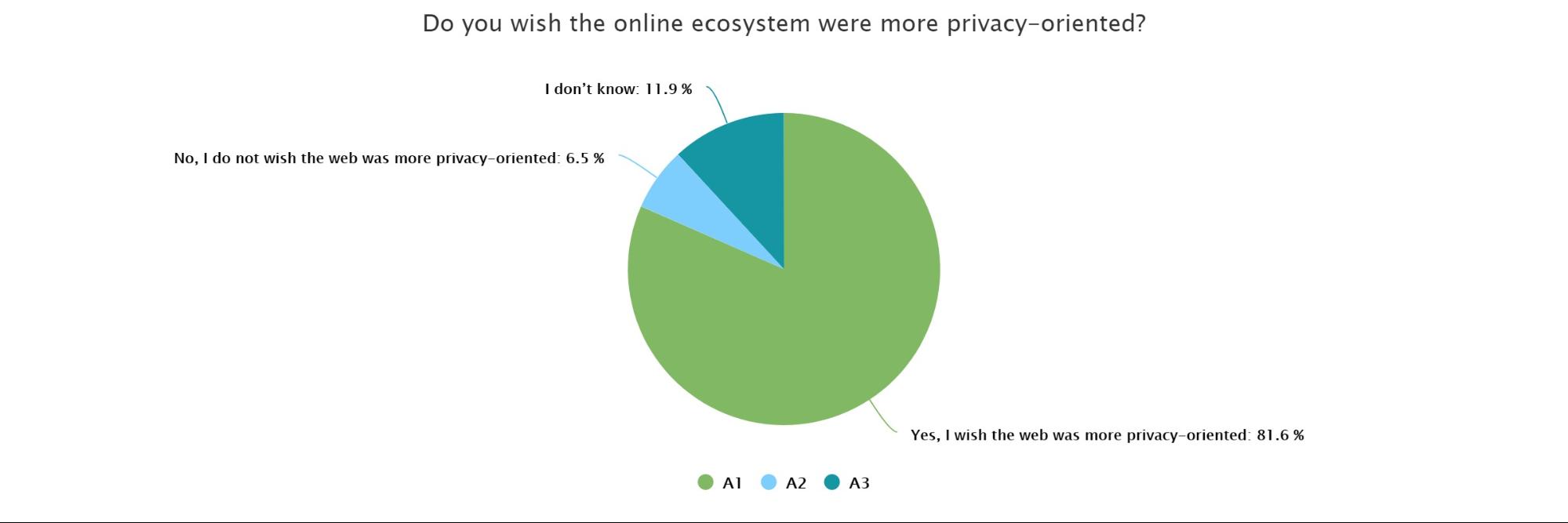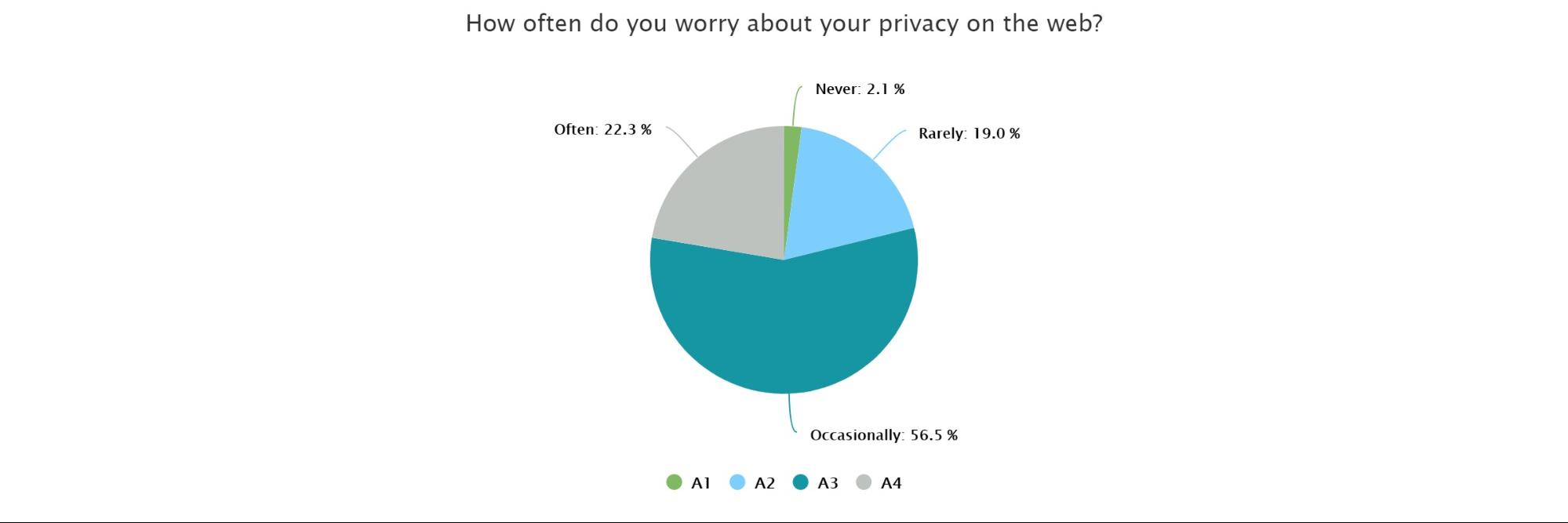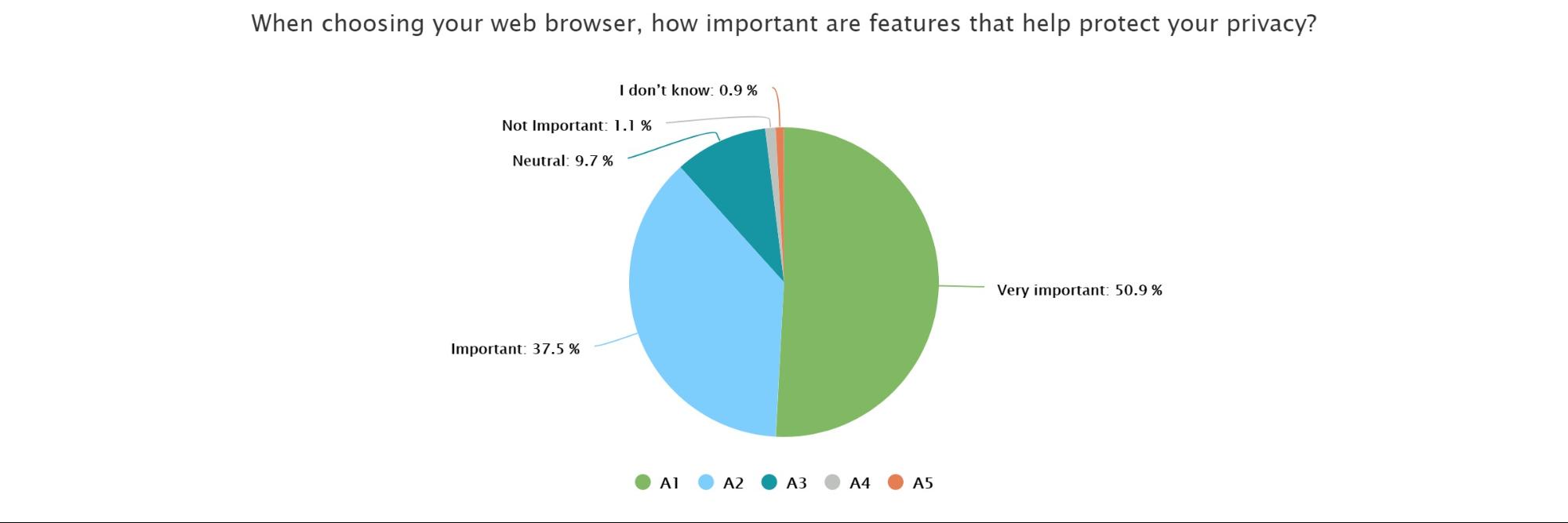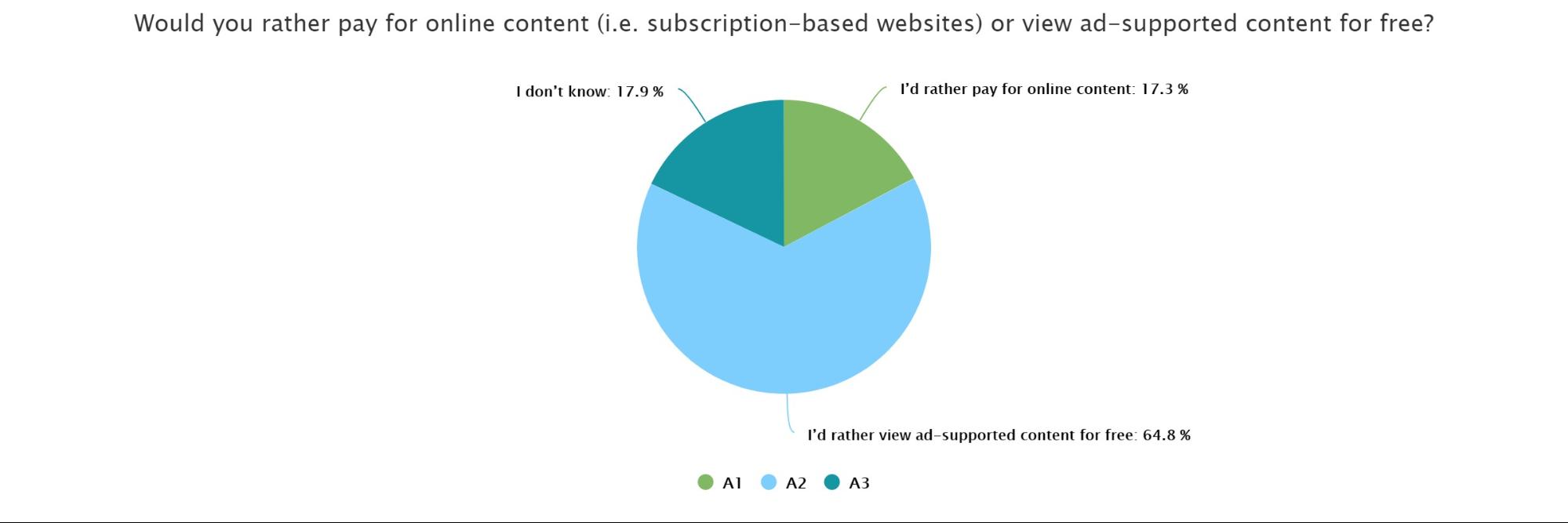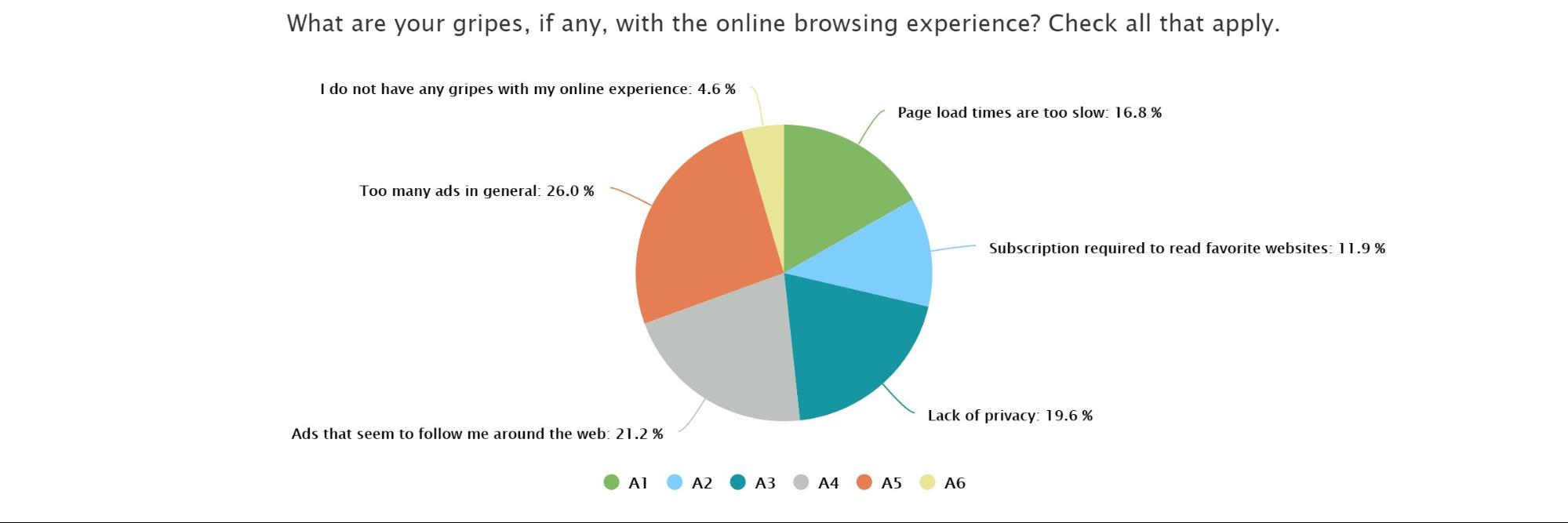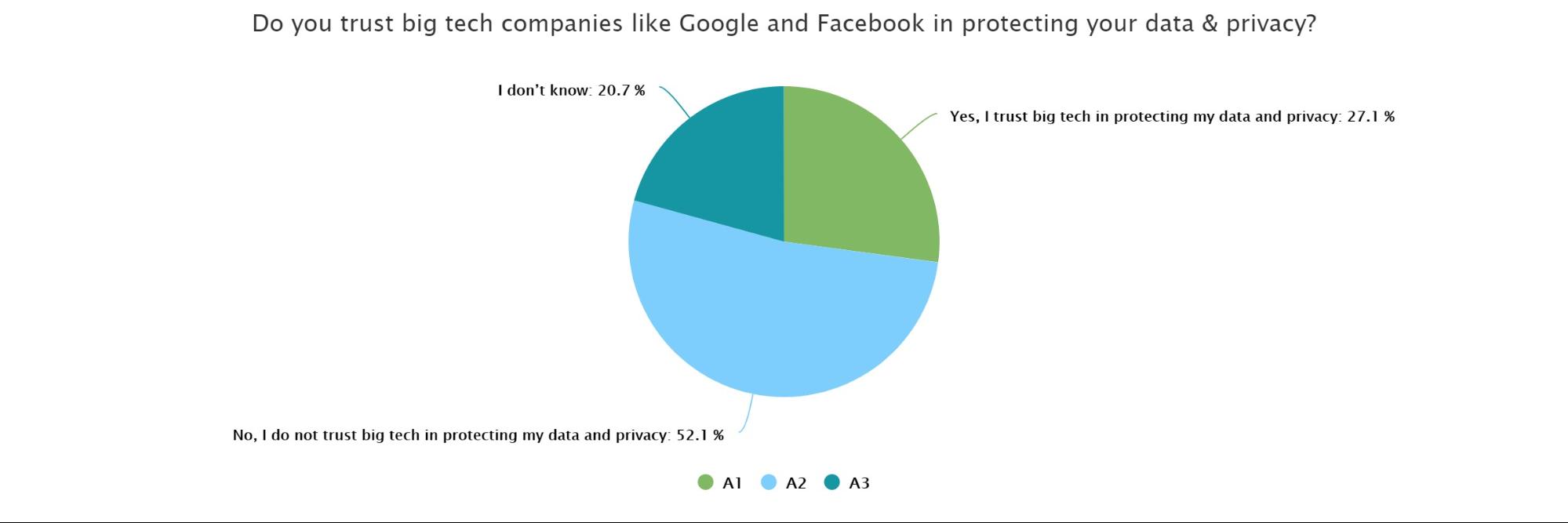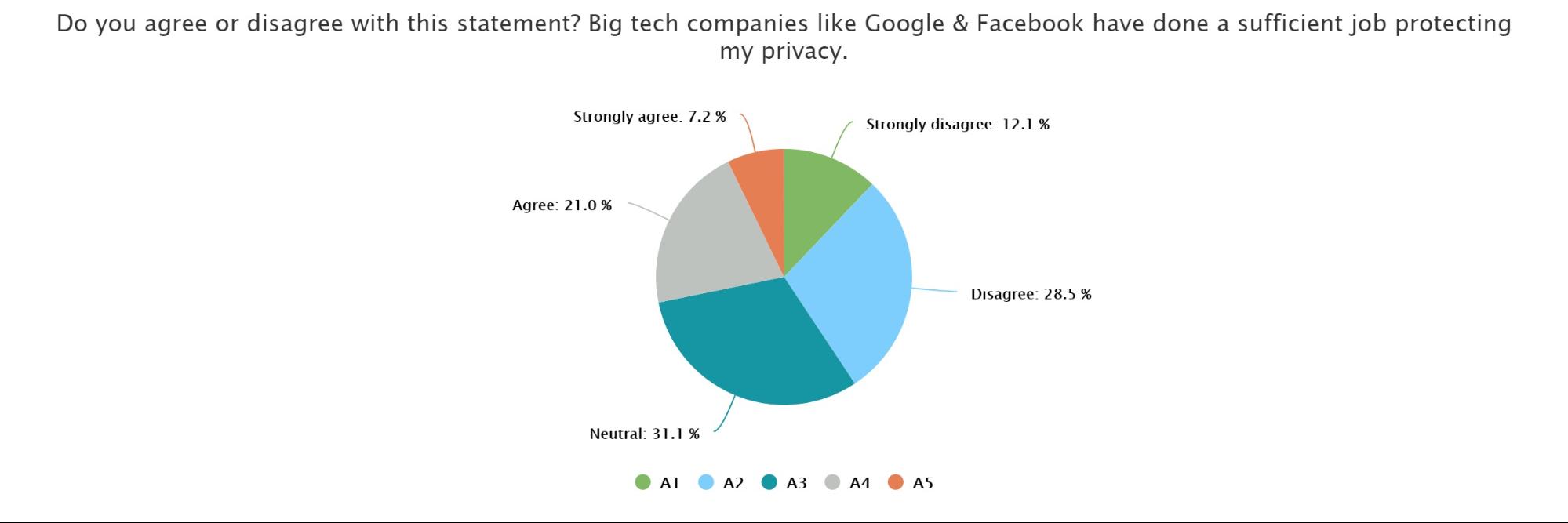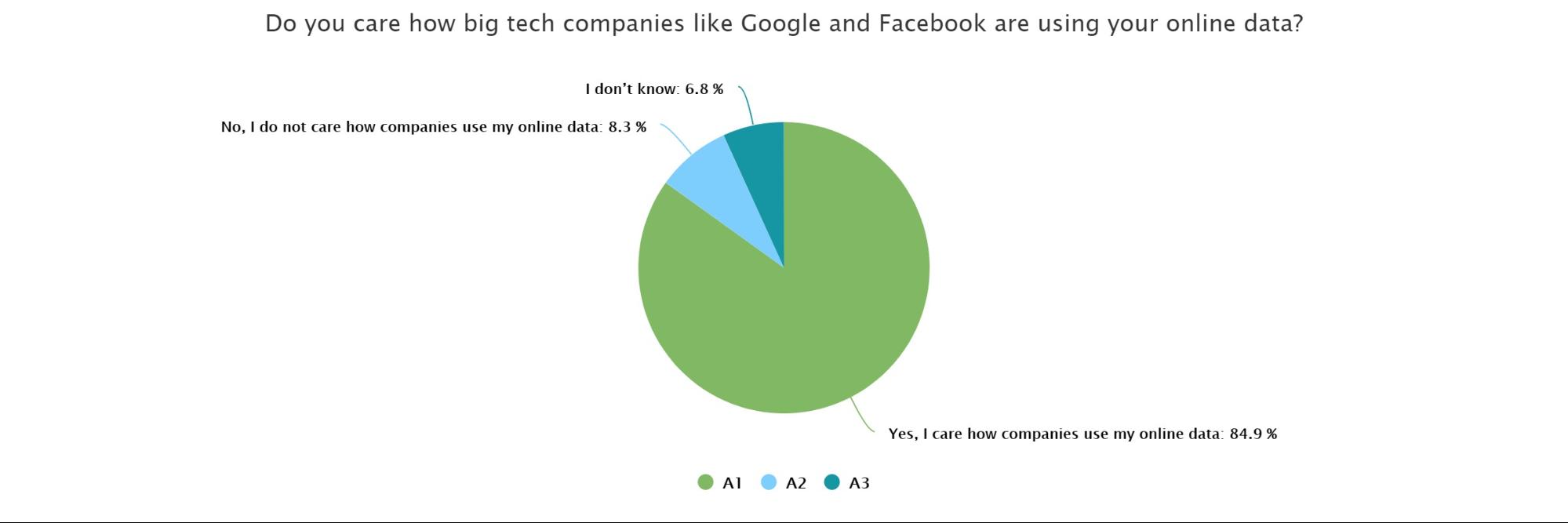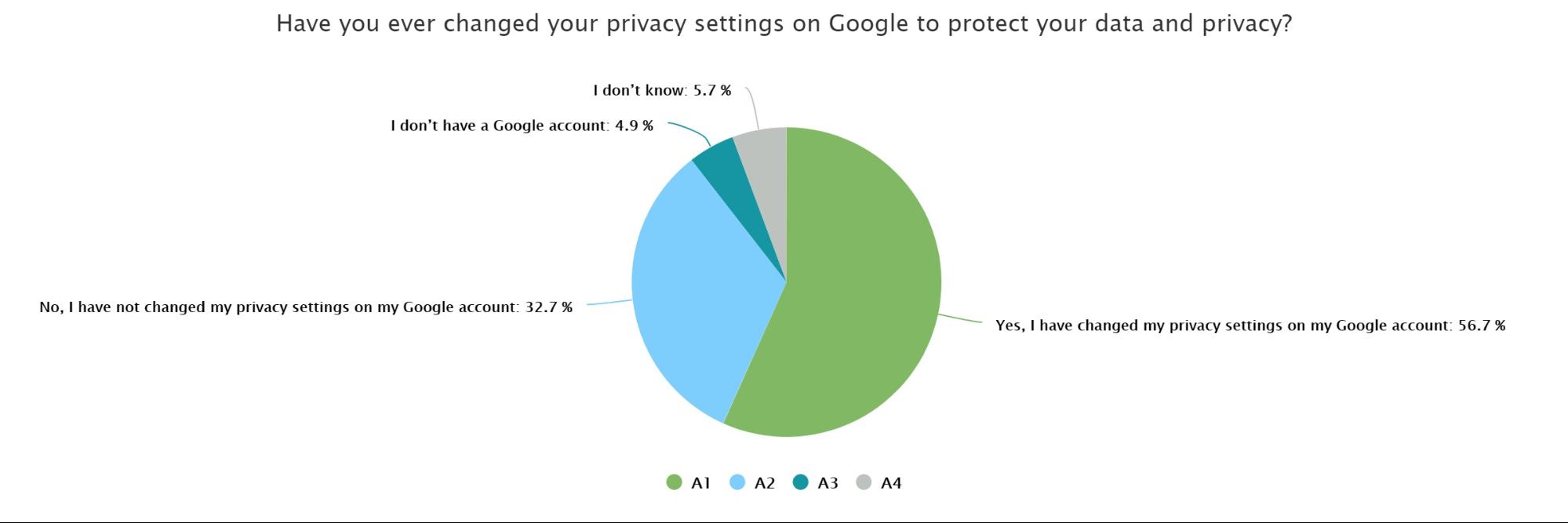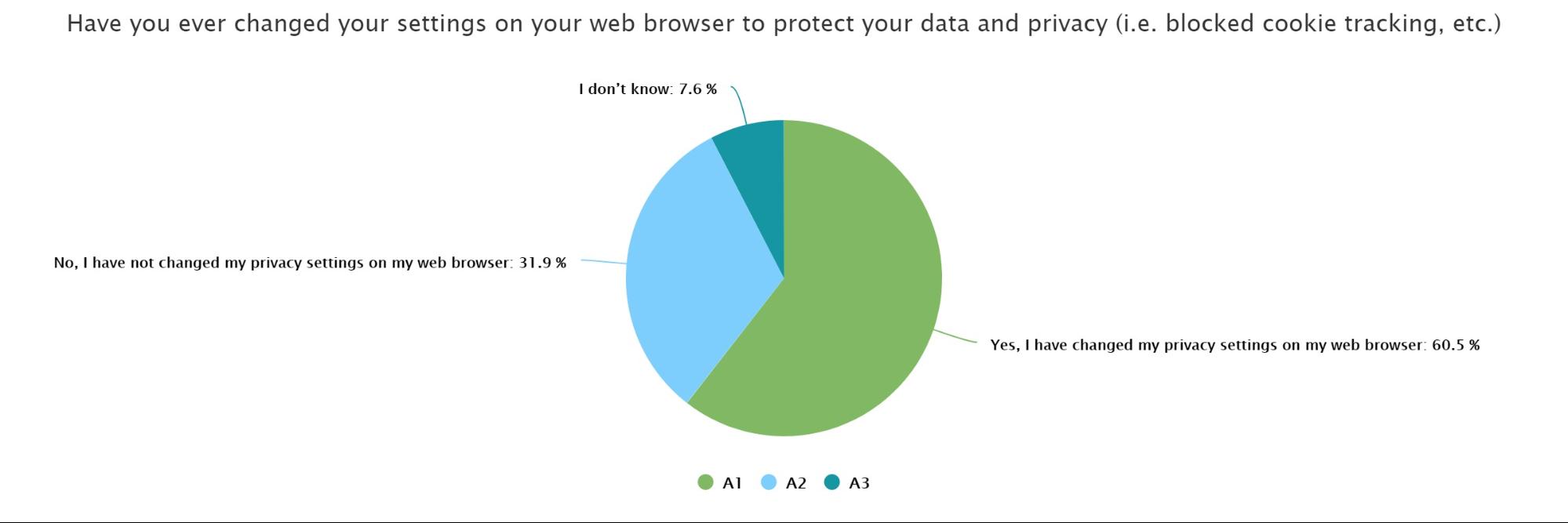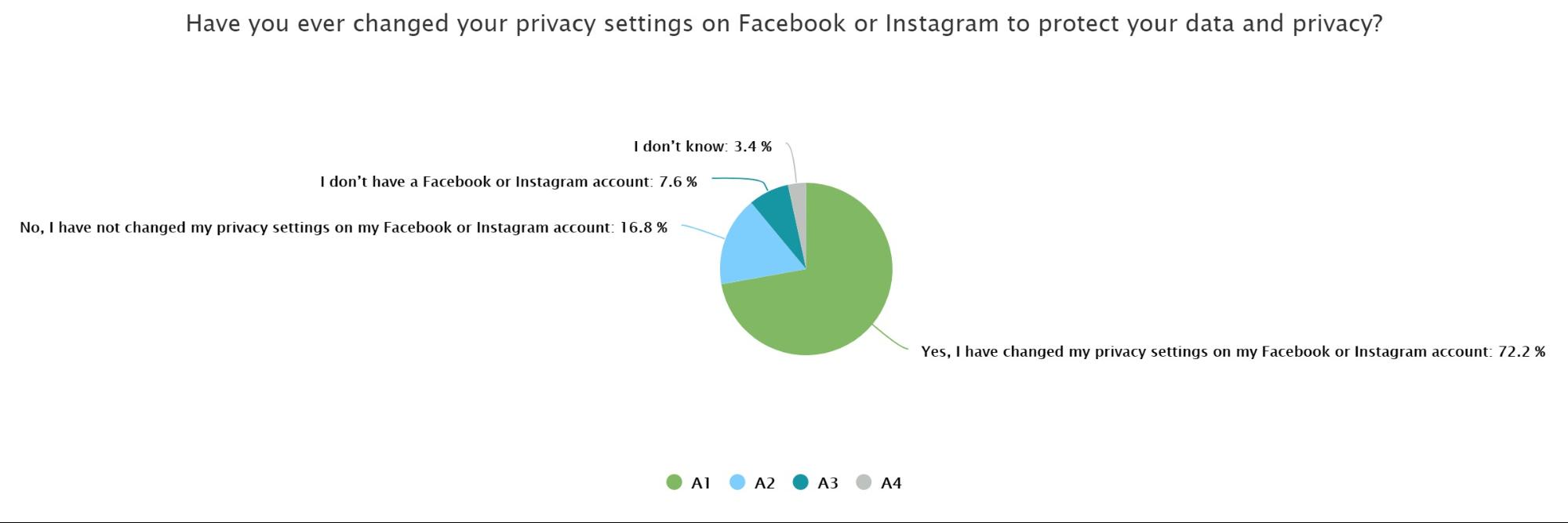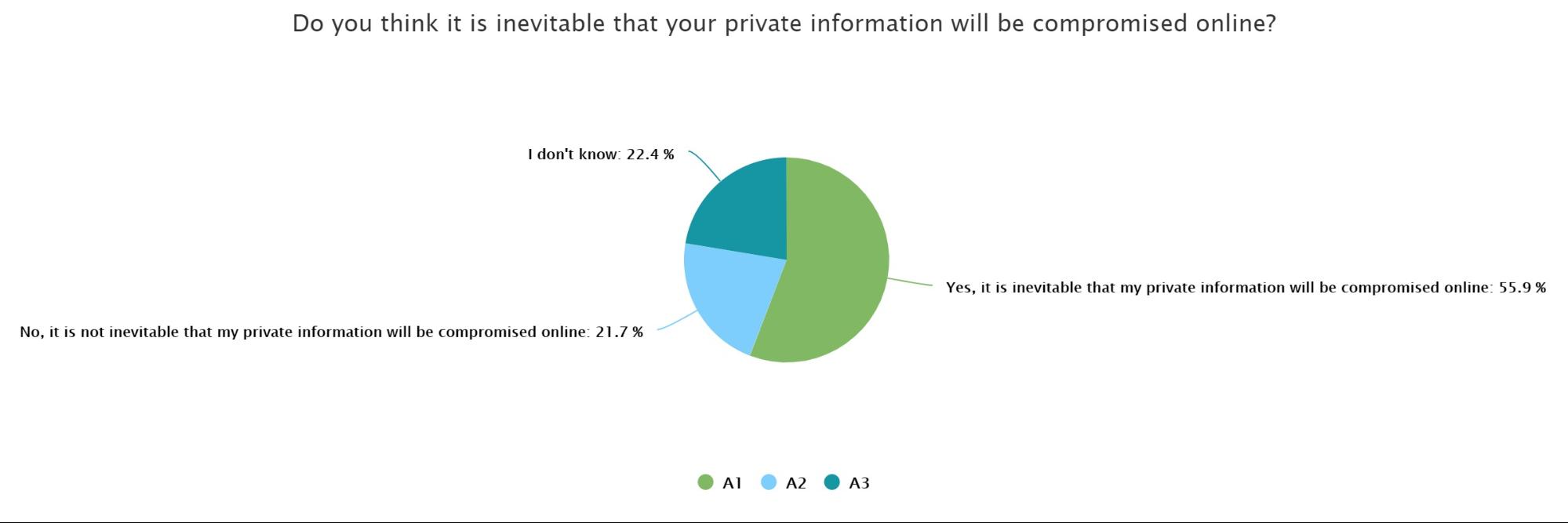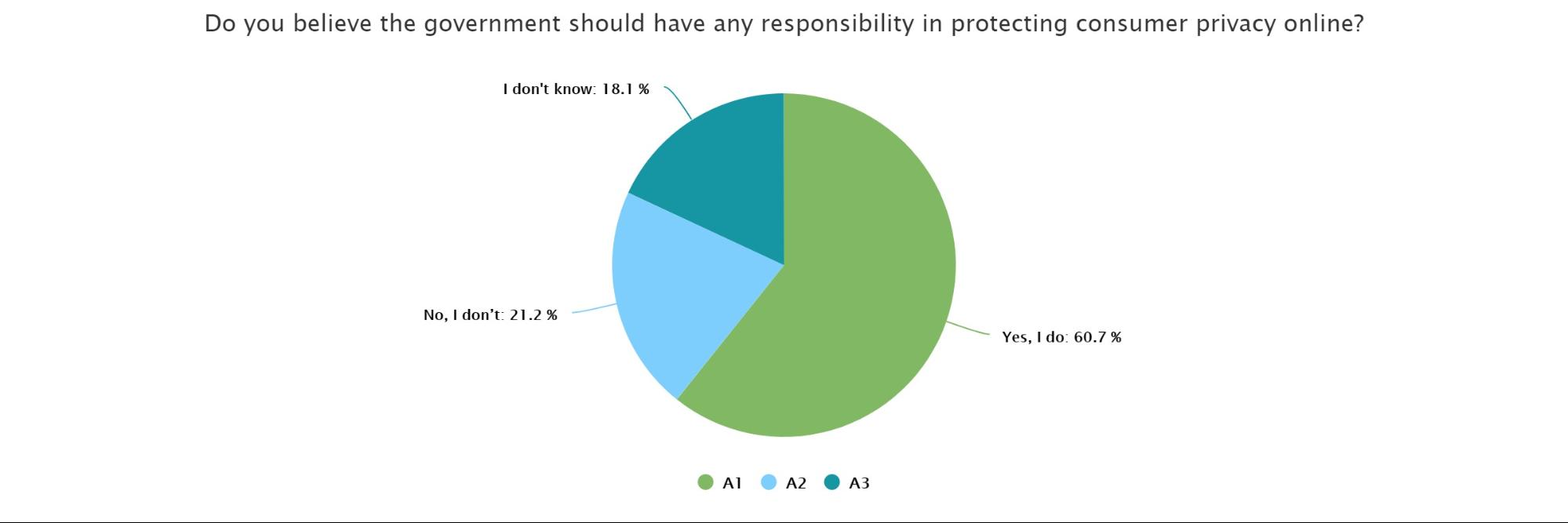Brave Software Finds 82% of People Wish the Web Were More Privacy-Oriented
Brave exposes an inflection point in the online ecosystem, with more users feeling increasingly concerned with protecting their online privacy and fed up with big tech.
Whether due to recent data privacy investigations, high-profile breaches, or emerging government regulations, online privacy is a rising concern for users across the nation. According to a new survey of 1,500 U.S. web users conducted by Brave Software, 76 percent of users feel more concerned with protecting their online privacy than they did one year ago, and 88 percent wish they had more control over how large companies like Google and Facebook use their personal data. It’s time for a change.
“Users are growing increasingly aware of how they are being violated by large technology companies, and are displeased by the tracking and targeting that comes with digital ads,” said Brendan Eich, CEO and co-founder of Brave Software. “Our data suggests that users are fed up with the surveillance capitalism that currently funds the Web. While they want to continue to experience the Web for free, they want more control over how their data is used, and they object to the pervasive lack of privacy that currently exists online. This increasing desire for change represents a tipping point for the industry that will push tech giants and regulators to shift toward a privacy-first approach.”
Key findings from Brave Software’s Online Privacy and Experience Sentiment survey include:
- Privacy Awareness is Growing: 80 percent of users feel more aware of the need to protect their privacy than they did one year ago. Furthermore, 44 percent of users list “lack of privacy” as a major gripe with online browsing and just 32 percent feel in control of their data online.
- Users Want a Privacy-Oriented Web: 82 percent of users wish the Web were more privacy-oriented and 79 percent of users worry about their privacy on the Web at least occasionally. Privacy is particularly important to users when choosing a browser - 88 percent say privacy features are important or very important.
- Tired of Being Tracked, Not Willing to Pay for Content: While 65 percent of users want to continue a free Web experience, 47 percent object to ads that seem to follow them around the web and 58 percent say their biggest gripe with web browsing is that there are too many ads in general.
- Big Tech Needs to Step It Up: Big Tech is losing user trust - 52 percent of users say they not not trust companies like Facebook and Google, and almost half (41 percent) say these companies have not done a sufficient job protecting their privacy. The majority of users (81 percent) care how Big Tech uses their online data and wish they had more control over it (88 percent). Still, 33 percent of users have not changed their privacy settings on their Google account and 32 percent have not changed the privacy settings on their browser — suggesting that the “opt-out” approach is leaving many users and their data unprotected.
- Time for Government Intervention?: 56 percent of users think it’s inevitable that their private information will be compromised online with the current state of the Web. Nearly two-thirds (61 percent) of users believe the government should step in and play a role in protecting user privacy.
Survey Methodology:
The findings within the Online Privacy and Experience Sentiment are based on an online survey conducted through Pollfish on October 31, 2019 of 1,500 people across the United States, ages 18 and over, to explore how web users think about online privacy, how much they understand about how their data is being used by advertisers and big tech and evaluate their desire for change.
Survey Data:
